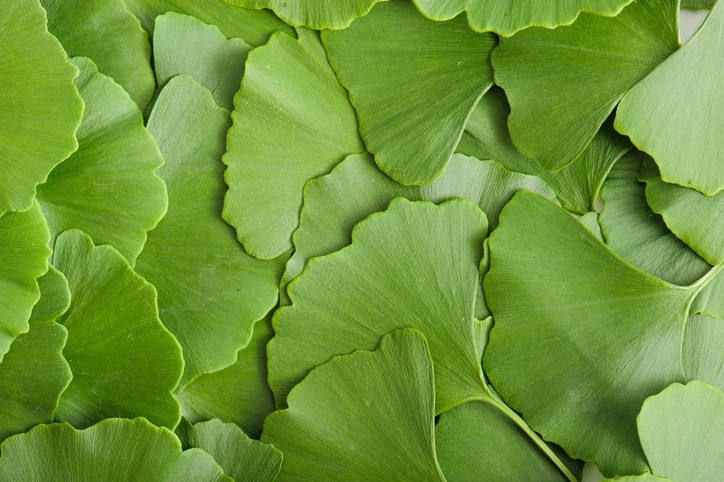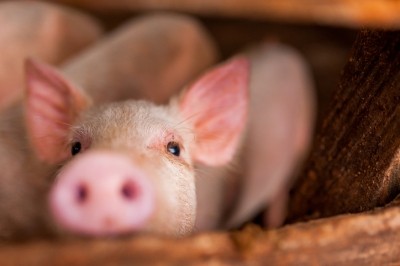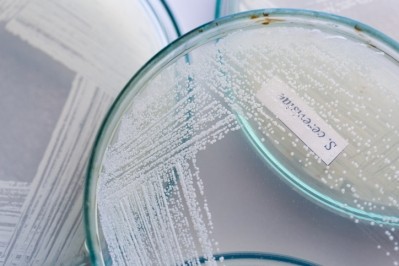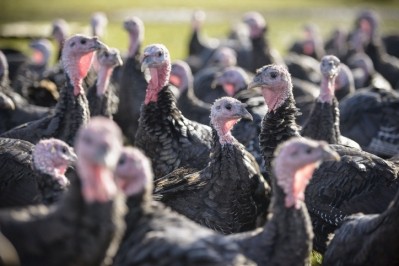Fermented Ginkgo biloba leaves could boost growth performance of broilers

Chinese researchers investigated the effect of different doses of FGBL affected growth performance, serum biochemistry and antioxidant activity.
Based on their results, they found that the inclusion of FBGL at a dosage level of 3.5–4.5 g/kg would be beneficial for broiler chickens.
The study was published in the journal Animal Feed Science & Technology.
Oxidative stress has been increasingly recognized as a main health problem in the modern intensive production of broilers, which may result in metabolic disturbance of fat and protein and imbalance of oxidation-antioxidation system, found the authors.
Thus, research linked to understanding antioxidant mechanisms is vital, they said.
Dietary manipulation is a common way to improve the antioxidant status (Zhang et al., 2014). Therefore, new herbal additives with fewer side effects in the diet of broilers that can effectively enhance antioxidant ability are needed, argued the researchers.
“Ginkgo biloba is a well-known Chinese traditional herb and grows in various regions of China. The medicinal parts of the tree are fresh or dried leaves and seeds.
“Ginkgo biloba leaves contains numerous bioactive constituents, such as flavonoids, terpenoids, polyphenols, polysaccharides, vitamins, and minerals. The flavonoids and terpenoids are two main pharmacologically active compounds present in Ginkgo leaf extract, which are known to act mainly as antioxidants (Defeudis and Drieu, 2000; Smith and Luo, 2004).
“However, the complicated extraction process leads to a higher price (Cao et al., 2012). In addition, high content of fibers with low digestibility is found in the extract, which restricts the absorption and utilization of nutrients in Ginkgo biloba leaves (Zhou et al., 2015).”
Fermentation
The team said that fermentation is a simple, inexpensive and effective method used in plant food to enhance shelf life, remove undesirable compounds and increase the nutritional quality (Chavan and Kadam, 1989; Frias et al., 2005).
Early studies showed that diet supplemented with Ginkgo biloba leaves fermented with Aspergillus niger or combined strain (Candida utilis and Aspergillus niger) could effectively improve lipid metabolism and antioxidant capacity of broilers (Cao et al., 2012; Zhang et al., 2015a,b), they noted.
“Aspergillus niger and Candida utilis are the major probiotic strains applied in broilers (Chen et al., 2009).
“They have the capacity to produce enzymes such as hemicellulase, hydrolase, pectinase, protease, amylase, lipase and tannase, which play important roles in feed utilization (Dei et al., 2008).”
However, the researchers said that, despite these findings, there has been a dearth of information on the possible beneficial effect of Ginkgo biloba leaves after fermentation by Aspergillus niger and Candida utilis. Studies on the antioxidation mechanism and optimum dose of fermented Ginkgo biloba leaves (FGBL) in broiler chickens are also limited.
The aim of their study then was to investigate the effects of different levels of Ginkgo biloba leaves fermented with Aspergillus niger and Candida utilis on blood characteristics, antioxidant capacities and hepatic gene expression of some antioxidative related genes and determine the appropriate dietary dose for broiler chickens.
Methodology
Broiler chicks were randomly divided into six treatment groups with six replicates of 18 birds each in a completely randomized design.
The six treatment groups were as follows: the control group, FGBL1, FGBL2, FGBL3, FGBL4 and FGBL5, in which chicks were fed the basal diet with 0, 1.5, 2.5, 3.5, 4.5 and 5.5 g/kg fermented Ginkgo biloba leaves for daily basis during the entire experiment, respectively.
The experiment lasted for six weeks. The basal diet was formulated to meet or exceed NRC (1994) requirements for all nutrients of broilers, said the authors.
Body weights were measured for each replicate at one and 42 days of age and feed consumption of each group were recorded weekly starting from day one. Growth performance was evaluated in terms of body weight (BW), feed consumption and gain to feed ratio, said the researchers.
Findings
The results indicated that gain to feed ratio had linear and quadratic influences by FGBL addition, they said.
Body weight showed a quadratic response and no significant influence on feed intake was observed.
The results indicated that diet supplemented with FGBL improved the feed conversion ratio, they added.
Broilers fed diet supplemented with 3.5 g/kg FGBL had the highest gain to feed ratio numerically, suggesting that the optimal level of FGBL in broiler diet might be 3.5 g/kg, they said.
A previous study reported that birds fed with fermented Ginkgo biloba residues showed higher growth performance and feed utilization than the control group (Zhou et al., 2015), noted the team.
They said the positive effect of FGBL on broilers seen in their study might be related to flavonoids involved in Ginkgo biloba leaves. Previous studies documented that the total flavonoid contents of Ginkgo biloba leaves were decreased slightly after fermentation (Cao et al., 2012), they added.
“Muqier et al. (2017) found that flavonoids regulated growth performance by promoting the secretion of growth hormone (GH), insulin-like growth factor-1 (IGF-1) and increasing the excitability of hypothalamic-pituitary-adrenal (HPA) axis.
“Microbial enzymes, such as β-glucosidase, cellulase, and xylanase, produced by fermentation could hydrolyze flavonoid glucosides and release free aglycones which may have higher bioactivity (Vattem and Shetty, 2003).
“The improved gain to feed ratio in the present study might be related to the constituents of Ginkgo biloba leaves after fermentation.”
Source: Animal Feed Science & Technology
Published online ahead of print: https://doi.org/10.1016/j.anifeedsci.2019.01.003
Title: Effect of different doses of fermented Ginkgo biloba leaves on serum biochemistry, antioxidant capacity hepatic gene expression in broilers
Authors: Y Niu, XL Wan, LL Zhang, C Wang, JT He, KW Bai, XH Zhang, LG Zhao, T Wang















